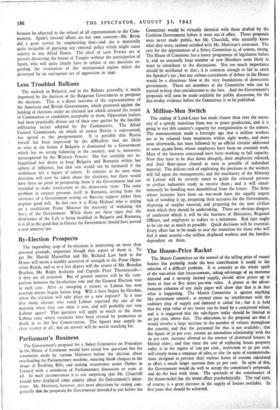Less Troubled Balkans
The outlook in Bulgaria, and in the Balkans generally, is much improved by the decision of the Bulgarian Government to postpone the elections. This is a direct outcome of the representations of the American and British Governments, which protested against the holding of elections under an electoral law which ensured the return of Communists or candidates acceptable to them. Opposition leaders had been practically driven out of their own parties by the forcible infiltration tactics adopted by the Communists. The Allied Control Commission, on which of course Russia is represented, has agreed to the postponement. It is possible that Russia herself has been impressed by the difficulties that are likely to arise in the future if Bulgaria is dominated by a Government which has no strong following in the country, and is, moreover, unrecognised by the Western Powers. She has certainly not re- linquished her desire to keep Bulgaria and Rumania within her sphere of influence, but that aim would not be furthered if the settlement left a legacy of unrest. It remains to be seen what decisions will now be taken about the elections, but there would have been no point in postponing them if the Government had not intended to make concessions to the democratic view. The same problem in essence presents itself in Rumania, arising from the existence of a Government resting on Russian support rather than popular good will. In this case it is King Michael who is urging on a recalcitrant Prime Minister the necessity of widening the basis of the Government. While there are these signs that the dominance of the Left is being modified in Bulgaria and Rumania, it is all to the good that in Greece the Government should have passed a new amnesty law.


























 Previous page
Previous page